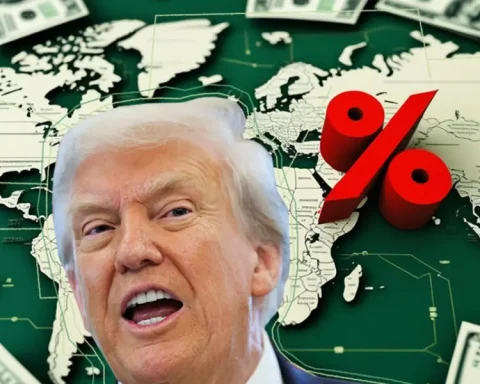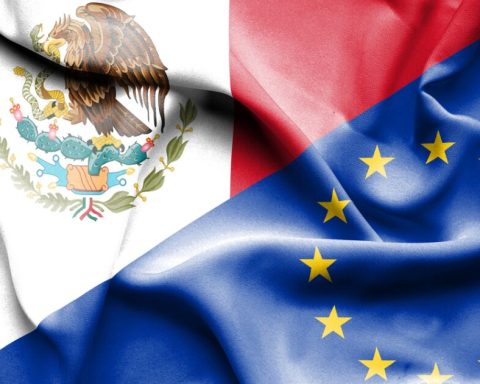By Guillermo Mateos, Director of Foreign Exchange and Derivatives Solutions at Banco BASE
The foreign exchange market is essential when we talk about global investment and international trade. Therefore, it is necessary to make import and export operations easier, carry out agile currency exchanges and generate adequate means of payment.
Small and medium-sized companies, large transnational corporations, multiple financial institutions and even governments participate in the foreign exchange market in order to exchange and value goods and services that allow the development of foreign trade.
Governments and financial institutions are the main agents in the foreign exchange market (Forex or Foreign Exchange Market) in which they meet in order to exchange currencies under the rules of supply and demand, through private contracts that generate an OTC market ( Over the counter) where both parties are obliged to comply with the characteristics of the agreed operation, thus generating one of the most active financial markets in the world with more than 5 billion USD traded daily.
The interaction between those who need to acquire foreign currency for their commercial or financial activity and the speculators who seek to obtain a return in this market with directional bets is what generates volume and liquidity in this market that has been active continuously since Sunday afternoon with the opening during the day in Oceania until Friday afternoon with the closure in the US.
How does the exchange rate affect Mexican foreign trade?
Foreign trade in Mexico, both imports and exports, is affected by the variation in the price of the Mexican peso (MXN) against other currencies.
An appreciation of the peso (MXN) against the rest of the currencies means good news for those companies that import raw materials, merchandise or services, but it means a fall in the value of the products of those companies that export; On the contrary, a depreciation of the peso means good news for exporters, since they will receive more money in pesos for their sales, and importers will end up paying more pesos for their purchases of foreign goods.
Thus we can summarize that the exchange rate of one currency against another has an effect on the volume of import and export transactions of a country.
The US dollar (USD) is the most used currency for foreign trade operations in Mexico, since the United States is its main trading partner.
Let’s evaluate the following two scenarios:
- The Mexican peso (MXN) gains value against the dollar (USD)
In this case, a scenario is presented that has a favorable impact on the importing sector, since the goods and services that are acquired from abroad represent the disbursement of a smaller amount of pesos per dollar.
The volume of imports grows and there is a greater availability of foreign merchandise in internal trade. The economic activity of commercialization of goods increases and there is a better perception of purchasing power
On the contrary, an excessively strong peso against the dollar affects exporters since their goods and services become more expensive abroad and global competitiveness is lost, which leads to a reduction in the volume of exports, a possible fall in the productive sector and a drop in foreign currency inflows to the country.
- The Mexican peso (MXN) loses value against the dollar (USD).
The positive impact in this scenario is for exporters, since their goods and services will become more competitive in terms of price compared to goods and services from other countries. This brings as a consequence an increase in the volume of exports, a possible increase in the productive and transformation sector, as well as an increase in the entry of foreign currency into the country that would generate accumulation of international reserves.
On the contrary, a constant and exaggerated weakness of the peso (MXN) against the dollar (USD), has negative repercussions for importers, since it increases the costs of the products they acquire, generating price increases that could lead to a reduction in domestic market and affecting the perception of purchasing power
In Mexico, this free floating scheme of the Mexican peso allows the value of the currency to be determined by supply and demand, which provides a market balance that can be used by both importers and exporters and generate economic conditions that allow the growth of the internal market, as well as international trade.

Advice and guidance are necessary
To participate in the foreign exchange market we suggest having the support of an expert.
BASE bench has 36 years of experience offering personalized advice and products that will support the client in their foreign trade transactions:
- Buy and sell currencies in more than 30 currency pairs.
- National and international settlements in the main legal tender currencies.
- facilities and financing in foreign exchange operations to streamline your transactions and boost your activity in international trade.
- Specialized advice on hedging instruments to shield your company from the volatility of the exchange rate.
- Digital Banking to manage your company’s resources in foreign currency with greater agility and send international payments efficiently, securely and at a lower cost.

Branded Content is the commercial content unit of El Economista that gives value to brands with content that is worth reading.

















